#turn washington s spies
Explore tagged Tumblr posts
Text



So was nobody gonna tell me that the Crypt that Benedict Arnold was buried in has been turned into a fucking kindergarten and the grace stone of one of Americas first war hero’s and greatest traitor is kept next to the class pet.
#this is fucking hilarious#and mildly insane#there’s also a stained glass window for him in the church that an American gave as a gift for the bicentennial#poor guy can’t catch a break#amc turn#turn#turn amc#amc turn washingtons spies#benjamin tallmadge#history#turn washington s spies
300 notes
·
View notes
Text
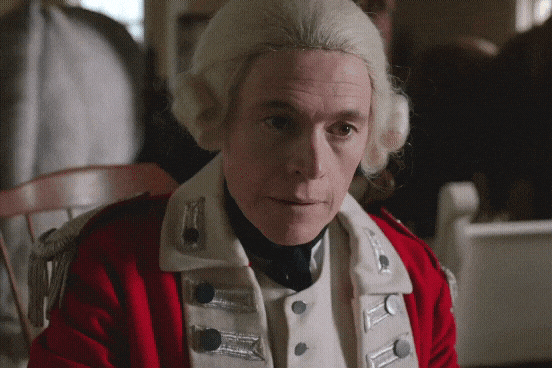
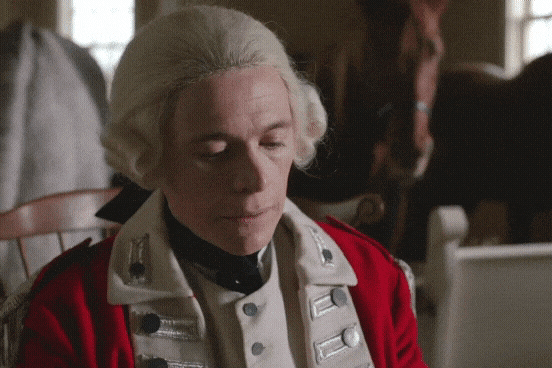
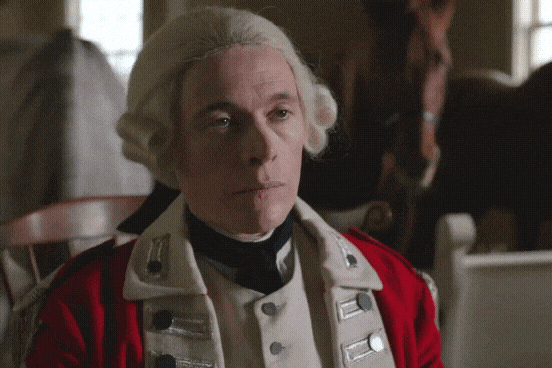

Ace's TURИ For Burn Rewatch: Who By Fire
#burn gorman#major hewlett#edmund hewlett#edmund my dearest 🔭#my beloved starboy 🌌#my gifs#tumblr again killing the quality#how do other giffers keep them so crisp & clean????#shut up ace#turn#amc turn#turn washington's spies#h a n d s#someday I'll make a masterpost only featuring his hands and no one can stop me#microexpressions!!!#man i need a tag for burn now fuck#the burn collection
64 notes
·
View notes
Text

For those who don't yet know me, you may call me Fragment as the blog suggests, but for those who do know me, carry on, carry over.
This is a multi-muse, independent 1x1 roleplay sideblog, follow backs will be from @timelessxmemories .
This blog mostly dabbles in fandoms such as; TURN: Washington's Spies, M*A*S*H, FFVII, FFX, Stardew Valley, StarTrek: The Next Generation, Octopath Traveler 2, & Bullet Train. (More may be added later on.)
I go by any and all pronouns, refer to me as whatever you may like, but please do not refer to me as a human, but rather a being or a deity.
I am 18+, I ask kindly that minors please do not interact as there may be very sensitive topics within this blog.
No heavy NSFW please, very light (ie: leading into it, not going into detail, a timeskip occurs to after) is fine, but nothing heavy.
Gore & violent themes are allowed to be explored further upon this blog and may or may not be referenced quite a few times.
Muses fluctuate from canon character to original characters.
Oc x Canon, Canon x Canon, Oc x Oc are all accepted on this blog.
M x M, F x M, F x F, etcetera are all accepted on this blog.
Please keep in mind that I am often very busy and very easily distracted so please do not get upset if i don't answer your DM, Ask, or reply to a roleplay right away, it may take me up to a month to get to these things depending on my energy and motivation.
#m*a*s*h#startrek the next generation#turn washington's spies#ff7#ffx#stardew valley#octopath traveler ii#bullet train#roleplay#roleplay blog#indie rp#1×1 rp#multifandom rp#multimuse rp#18+ mdni
4 notes
·
View notes
Text
annalett yuri do you see the vision
#everything is yuri until proven otherwise#turn : washington ' s spies#turn amc#edmund hewlett#anna strong#annalett#i love them sooo much
9 notes
·
View notes
Text
And sadly, this is an ongoing issue in historical fiction, many years after The Patriot. TURN: Washington's Spies, which is a great deal more recet, did the same thing with their depiction of General Sir Henry Clinton.
An solidly middle-aged man in uniform, there was apparently not much room to make him look what to some 21st century eyes might pass as "effeminate", so he receives an implied affair with the fashion-conscious hairdresser of Margaret Shippen and friends, Freddie.
I think I need not elaborate on why that doesn't sit right with me, even more so because the historical Clinton was nothing like this gregarious, unashamedly gay (both for handsome hairdressers and in the old-fashioned sense of the word) on-screen portrayal who occasionally oversees a British defeat in a badly-staged battle from afar; historically, the man had a spotless prior military record from the 7 Years' War, 11 biological children by 3 women (not counting his de facto adoptive son John), because of whom he repeatedly threatened to desert as he was homesick for them, and had difficulties socialising with others to the point he described himself as a "shy bitch" in his diary.
None of this information is particularly hard to find; Clinton has a thorough, if somewhat old, biography to his name that can be accessed digitally, and free of chage via archive.org.
As a non-American consuming American media set in this period, what irks me most is that the tactic of using these harmful stereotypes of the "effeminate" or even outright gay man as shorthand for lacking in moral values, strength and cleverness on the battlefield, persists, both because, to repeat myself here, these stereotypes are harmful and indicative of issues our modern-day society has with its image of men and masculinity, and because it's narratively unappealing.
"The bad guys are the bad guys because they shave and use perfume, and maybe also kiss other men!!1!!!" Just isn't a convincing antagonist or villain backstory for me. As an addition to this, yes to OP's point that this way of treating male characters also shines a light on modern-day misogyny.
Furthermore, it justs shows the need of US filmmakers to 'justify' the actions of the same set of male historical figures who verifiably weren't that great as people (or larger-than-life flawless altruistic freedom fighters) after all (think e. g. of slavery, to name but one important point here). Setting a British antagonist whose character is compelling while also displaying posittive traits against Washington and co., one might run the risk of 'devaluing' the Founding Fathers by setting up a character who would make for an equally appealing alternative to them.
TURN tried to work more into that direction with the sympathetic and kind British Major Edmund Hewlett, but failed by making him a) somewhat incompetent in military matters (as compared of course to Patriot characters of a similar rank) and b) a decidedly fictional character, when a great deal of his personality traits were actually lifted from the real life Lieutenant-Colonel John Graves Simcoe, whose name then in turn (hah) gets slapped on a comedically evil, and entirely fictional British arch-villain-type whose main goal in life is to be evil and sadistic, just because he can.
Ideally, filmmakers would at last be courageous and attempt more nuanced displays of the Revolutionary War, bidding adieu to the old "Good Guys vs. Bad Guys" narrative and attempt a more nuanced portrayal of the period and its people, who were no more than that; people. People who, as we all are, were not without fault and had their own reasons to participate; some out of ideological conviction, others for some sort of personal gain, and yet others because being the son of a second son and yet expected to keep up a certain living standard is hard, so you need to take up a job and make money somehow in order to raise your kids with the financial security you never had at their age because your own parents weren't exactly competent keeping the family money together; but the crucial thing is, all of these kinds of people existed, and existed on both sides. Nuance matters.
all the ladies love that I have so many thoughts on the vilification of male effeminacy in popular thought about the American Revolution
it's soooo sexy that those thoughts are half-formed because my research specialty is actually 19th-century social history (with focuses on women's, queer, and dress history)
I'm actually very hot for doing all of this, in fact
#p s why not go for a man who loves to dress and/or is gay as the mc for a change#that could be interesting if well done#anyway we should not forget to work on our modern perceptions and prejudices regarding masculinity too#and to american film makers: henry clinton was technically a new yorker so give me the sir henry multiseason series i crave#reblog#vankeppel#american revolution#amrev#american revolutionary war#revolutionary war#18th century#history#the patriot#turn amc#turn washington's spies#henry clinton#r rambles
2K notes
·
View notes
Text
The AmRev fandom definitely has subgroups. I'll name a few I feel like I've seen. Are there any I missed? I'd say that the Hamilton fandom is separate since it's so big but there's definitely overlap.
• 1776: This subgroup enjoys 1776 and is focused on the politics during the war and founding fathers. 1776 is like the second evolution of Hamilton because the group members have witnessed those fandom horrors. Now the fandom horrors created by the 1776 subgroup are tastefully cringe but still historical /lh.
• Lams: "Nothing lasts forever" well Lams has been a thing since the dawn of time /j. What I mean is that this subgroup is always going strong! They are powerful.
• Rev War: Focuses on the military side of the revolution. This subgroup loves battles and generals, especially the more obscure stuff. Washington's aides are also included!
• Federal Era: This subgroup focus on politics of the 1790s to 1820s. The Democratic- Republicans rule this subgroup since Jefferson Madison and Monroe were all presidents. John Adams lurks...
• 2020-2022 core group: This subgroup used to dominate AmRev tumblr. Many are still active but usually don't focus on AmRev in posts anymore.
• TURN Washington's Spies: This subgroup enjoys TURN :) and all the little things in it (except Benedict Arnold)
Tag which subgroup(s) you're in! Feel free to add on btw! :)
#I definitely overlap between them but most of my content is 1776#amrev#amrev fandom#amrev memes#1776#1776 musical#1776 fandom#historical lams#turn#turn amc#turn: washington's spies
126 notes
·
View notes
Text
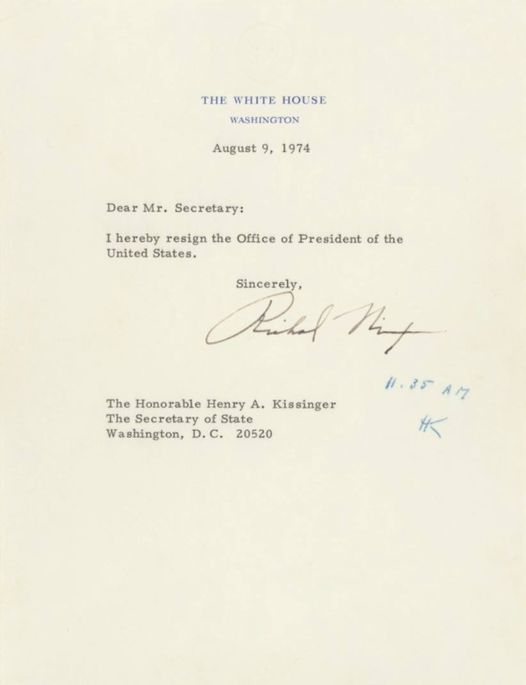
LETTERS FROM AN AMERICAN
August 8, 2024
Heather Cox Richardson
Aug 09, 2024
Fifty years ago, on August 9, 1974, Richard M. Nixon became the first president in U.S. history to resign.
The road to that resignation began in 1971, when Daniel Ellsberg, who was at the time an employee of the RAND Corporation and thus had access to a top-secret Pentagon study of the way U.S. leaders had made decisions about the Vietnam War, leaked that study to major U.S. newspapers, including the New York Times and the Washington Post.
The Pentagon Papers showed that every president from Harry S. Truman to Lyndon B. Johnson had lied to the public about events in Vietnam, and Nixon worried that “enemies” would follow the Pentagon Papers with a leak of information about his own decision-making to destroy his administration and hand the 1972 election to a Democrat.
The FBI seemed to Nixon reluctant to believe he was being stalked by enemies. So the president organized his own Special Investigations Unit out of the White House to stop leaks. And who stops leaks? Plumbers.
The plumbers burglarized the office of Ellsberg’s psychiatrist in California, hoping to find something to discredit him, then moved on to bigger targets. Together with the Committee to Re-elect the President (fittingly dubbed CREEP as its activities became known), they planted fake letters in newspapers declaring support for Nixon and hatred for his opponents, spied on Democrats, and hired vendors for Democratic rallies and then scarpered on the bills. Finally, they set out to wiretap the Washington, D.C., headquarters of the Democratic National Committee, in the fashionable Watergate office complex.
Early in the morning of June 17, 1972, Watergate security guard Frank Wills noticed that a door lock had been taped open. He ripped off the tape and closed the door, but on his next round, he found the door taped open again. Wills called the police, who arrested five men ransacking the DNC’s files.
The White House immediately denounced what it called a “third-rate burglary attempt,” and the Watergate break-in gained no traction before the 1972 election, which Nixon and Vice-President Spiro Agnew won with an astonishing 60.7% of the popular vote.
But Bob Woodward and Carl Bernstein, two young Washington Post reporters, followed the sloppy money trail back to the White House, and by March 1973 the scheme was unraveling. One of the burglars, James W. McCord Jr., wrote a letter to Judge John Sirica before his sentencing claiming he had lied at his trial to protect government officials. Sirica made the letter public, and White House counsel John Dean immediately began cooperating with prosecutors.
In April, three of Nixon’s top advisors resigned, and in May the president was forced to appoint former solicitor general of the United States Archibald Cox as a special prosecutor to investigate the affair. That same month, the Select Committee on Presidential Campaign Activities, informally known as the Senate Watergate Committee, began nationally televised hearings. The committee’s chair was Sam Ervin (D-NC), a conservative Democrat who would not run for reelection in 1974 and thus was expected to be able to do the job without political grandstanding.
The hearings turned up the explosive testimony of John Dean, who said he had talked to Nixon about covering up the burglary more than 30 times, but there the investigation sat during the hot summer of 1973 as the committee churned through witnesses. And then, on July 13, 1973, deputy assistant to the president Alexander Butterfield revealed the bombshell news that conversations and phone calls in the Oval Office had been taped since 1971.
Nixon refused to provide copies of the tapes either to Cox or to the Senate committee. When Cox subpoenaed a number of the tapes, Nixon ordered Attorney General Elliot Richardson to fire him. In the October 20, 1973, “Saturday Night Massacre,” Richardson and his deputy, William Ruckelshaus, refused to execute Nixon’s order and resigned in protest; it was only the third man at the Justice Department—Solicitor General Robert Bork—who was willing to carry out the order firing Cox.
Popular outrage at the resignations and firing forced Nixon to ask Bork—now acting attorney general—to appoint a new special prosecutor, Leon Jaworski, a Democrat who had voted for Nixon, on November 1. On November 17, Nixon assured the American people that “I am not a crook.”
Like Cox before him, Jaworski was determined to hear the Oval Office tapes. He subpoenaed a number of them. Nixon fought the subpoenas on the grounds of executive privilege. On July 24, 1974, in U.S. v. Nixon, the Supreme Court sided unanimously with the prosecutor, saying that executive privilege “must be considered in light of our historic commitment to the rule of law. This is nowhere more profoundly manifest than in our view that 'the twofold aim (of criminal justice) is that guilt shall not escape or innocence suffer.'... The very integrity of the judicial system and public confidence in the system depend on full disclosure of all the facts….”
Their hand forced, Nixon’s people released transcripts of the tapes. They were damning, not just in content but also in style. Nixon had cultivated an image of himself as a clean family man, but the tapes revealed a mean-spirited, foul-mouthed bully. Aware that the tapes would damage his image, Nixon had his swearing redacted. “[Expletive deleted]” trended.
In late July 1974, the House Committee on the Judiciary passed articles of impeachment, charging the president with obstruction of justice, abuse of power, and contempt of Congress. Each article ended with the same statement: “In all of this, Richard M. Nixon has acted in a manner contrary to his trust as President and subversive of constitutional government, to the great prejudice of the cause of law and justice and to the manifest injury of the people of the United States. Wherefore Richard M. Nixon, by such conduct, warrants impeachment and trial, and removal from office.”
And then, on August 5, in response to a subpoena, the White House released a tape recorded on June 23, 1972, just six days after the Watergate break-in, that showed Nixon and his aide H.R. Haldeman plotting to invoke national security to protect the president. Even Republican senators, who had not wanted to convict their president, knew the game was over. A delegation went to the White House to deliver the news to the president that he must resign or be impeached by the full House and convicted by the Senate.
In his resignation speech, Nixon refused to acknowledge that he had done anything wrong. Instead, he told the American people he had to step down because he no longer had the support he needed in Congress to advance the national interest. He blamed the press, whose “leaks and accusations and innuendo” had been designed to destroy him. His disappointed supporters embraced the idea that there was a “liberal” conspiracy, spearheaded by the press, to bring down any Republican president.
LETTERS FROM AN AMERICAN
HEATHER COX RICHARDSON
#Letters From An American#Heather cox Richardson#Nixon#history#American History#the presidency#Watergate
22 notes
·
View notes
Text
Practicing French

Pairing: Turn Washington’s Spies Lafayette x fem!reader
18th century (1700’s)
TW: Duolingo French, lots of French (pull up google translate now if you don’t know much french 😭)
Summary: Your “friend” Lafayette is teaching you some French. Little did you know, he was telling you things you didn’t know in French.
Word count: like 100-200–short n sweet <3
——————————————
“Je suis.” His accent was thick and serious.
You bit your lip as you thought and translated in your head. “Uh…I am?”
“Very good.” The corners of his mouth turned upwards. “Euh…Delighed in French.”
“Enchantè?” You sat criss crossed on the carpeted floor.
“Hmm…let me see you write it down.” He smiled and handed you a quill.
So then you wrote down, enchantè.
“Close, mon amour. Ils enchanté.” He wrote down enchanté and you immediately felt stupid. “Would you like to keep going?”
“Oui.” He smiled as the words flowed from your mouth perfectly.
“Je m’appelle.” He swallowed.
���My name is.” You said confidently. That was one of the only words you knew instantly.
“Great. Let’s move on.”
“Je t'aime.” He smiled sweetly as he looked into your eyes.
“Laf, you never taught me any of this, how am I supposed to figure that out-“ You rolled your eyes.
“Never mind, let’s move on. Je suis ça va trés bien. Et toi?” The words danced from his mouth, accent thick, with the perfect pronunciation.
“That’s a long sentence, I’m not sure I can do that.” You sighed, mad at your stupid self.
He took your soft hand in his. “Write it down if you need to, chérie.” He encouraged. You wrote down slowly, processing and translating each word at your own speed.
You wrote down the last word, and confidently said, “I am doing very well. And you?”
A smile spread across his handsome face. “Very good, chérie.”
“Or trés bien.” You smiled.
“Ou trés bien.” He repeated, slightly changing the sentence to ‘Ou’ instead of ‘or.’
You smacked your forehead. “How did I not think of that-“
“Chérie, tu as l'air si majestueuse et belle. Je pourrais t'embrasser tout de suite.” He smiled slyly.
”Lafayette…” She tilted her head to meet his gaze. His eyes widened as the thought of you knowing what he said crossed his mind.
“You know?”
“I do…only the first part. My mother used to say that to me in French.” You blushed. “She wasn’t fluent though.”
“Might as well repeat the whole thing in English.” He sighed. “The last sentence—I could kiss you right away.”
Desire and love filled your heart as you wrapped your arms around his neck and he pulled you closer and gently kissed you.
You hum against each other’s lips, his hand cupping your cheek and the other gripping you waist. He pulls away and smiles.
“Ma chérie, I’ve been waiting to do that for the longest time now.”
You leap towards him, wrapping your arms around his underarms and touching his back with your hands. He held your shoulder as he toppled over. After the small fall, he tightened the grip on you, and traced hearts on your back with his finger.
“Je t'aime.”
“I love you?” You translated. You didn’t know exactly, but you thought he was say something like that.
“I love you too.” She giggled and he held her tighter, not getting up from the floor.
9 notes
·
View notes
Text

COMFORT LIST

COMFORT CHARACTER(S): Mace Windu (Star Wars), Obi-Wan Kenobi (Star Wars), Yoda (Star Wars), Percy Jackson (Percy Jackson), Milo Thatch (Atlantis: the Lost Empire), Elizabeth Bennet (Pride and Prejudice), Atticus Finch (To Kill a Mockingbird), Elphaba (Wicked), Penelope Featherington (Bridgerton), Christine Daaè (The Phantom of the Opera), Elsa (Frozen), Rose Dewitt Bukater (Titanic), Violet Sorrengail (Empyrean Series).
COMFORT MOVIE(S): Titanic (1997), Night at the Museum (2006), Lincoln (2012), Barbie (2023), Pride and Prejudice (2005), Star Wars: A New Hope (1997), Atlantis: the Lost Empire (2001), Coco (2017), Home Alone (1989), Rise of the Guardians (2012), The Princess Bride (1987), Mean Girls (2006), Anastasia (1997), Maleficent (2013), Little Women (2019), The Chronicles of Narnia: The Lion, the Witch, and the Wardrobe (2005), The Prince of Egypt (1998).
COMFORT BOOK(S): The Percy Jackson and the Olympians Series (Rick Riordan), The Empyrean Series (Rebecca Yarros), The Unwanteds (Lisa McMann), To Kill A Mockingbird (Harper Lee), Divergent (Veronica Roth), Pride and Prejudice (Jane Austen), Sense and Sensibility (Jane Austen), Northanger Abbey (Jane Austen).
COMFORT SHOW(S): Bridgerton, Percy Jackson and the Olympians, Star Wars: the Clone Wars, Titanic: Blood and Steel, PBS’s Liberty’s Kids, Anne With an E, Turn: Washington’s Spies.
COMFORT SONG(S): The Man (Taylor Swift), Shake It Off (Taylor Swift), Irrelevant (P!nk), Dancing Queen (ABBA), I Hear a Symphony (Cody Fry), Born This Way (Lady Gaga), Ya-Ya (Beyoncé), no tears left to cry (Ariana Grande), Sign of the Times (Harry Styles), Here Comes The Sun (The Beatles).
COMFORT GAME(S): Mario Kart, Minecraft, Club Penguin Journey, The Sims.

STOLEN FROM @bijoupreciieux.
TAGGING @girlsurvive, @vyrulent, @mvndrvke, @deficd, @monmuses, @reverdies, @rh4egar, @strcngered, @misfittcd, @wolfvirago, @villainmade, AND YOU. All tags on dash games are no pressure, so feel free to ignore this if you prefer! Let me know if you don’t want to be tagged on these.

8 notes
·
View notes
Text
Period Drama Appreciation Week 2024: Day 1 - Favourite TV show(s)

Harlots on Hulu (2017 - 2019).

TURN: Washington's Spies (2014 - 2017).
#perioddramaappreciationweek24#meeraedits#harlotsedit#jessica brown findlay#harlots on hulu#turnedit#turn washington's spies#turn amc#amc turn#turn: washington's spies#perioddramaedit#perioddramasource#tvedit#my edit#mine#seth numrich#daniel henshall#heather lind#jamie bell#18th century#american revolution
9 notes
·
View notes
Text
Guy’s is out lander worth it? Every show I watch i become obsessed with for at least a month and I need to know if its worth the inevitable lack of sleep.
1 note
·
View note
Text



Ace's TURИ for Burn Rewatch: The Prodigal
#stars above I forgot how weak I am for this ship; my heart is gonna break all over again ;_;#burn gorman#heather lind#major hewlett#edmund hewlett#mrs. strong#anna strong#edmund my dearest 🔭#my beloved starboy 🌌#anna my darling#annlett#amc turn#turn washington's spies#turn#my gifs#i know this set is probably on here already but idc~#h a n d s#burn's fucking jawline jfc sir#a face with so many angles you'd need a protractor to measure it#man i need a tag for burn now fuck#the burn collection#seriously the way these two keep sneaking glancing at each other omfg#in another life...#shut up ace
16 notes
·
View notes
Text





#benjamin tallmadge#benjamin turn#turn washington's spies#turn edit#turn washington spies poster#seth numrich as benjamin tallmadge#seth numrich#etsy product#etsy gift
7 notes
·
View notes
Text
i finished . turn : washington ' s spies 3 . 4 for the first time . and . now i ' m eating straight wasabi just to feel something
#turn : washington ' s spies#turn amc#terrible day to be an annalett shipper#they mean so much to me#sobbing screaming throwing up
3 notes
·
View notes
Note
yo was wondering where you find your scenes. im tryna find some scenes of robert townsend but i dont have amc + or the series bought on anything so i was wondering if you had any like scene packs or links or whatever
yes I have a couple!!!
This is the main one that I use. It has a lot of screencaps from every episode of turn, so it is very clutch
Sometimes I'll also use youtube videos such as
Ian Kahn's own highlight reel
The John Andre Treason Cut
Clips that are posted by AMC on youtube
And then there's also good ol' fashioned google images, where I can usually find promo images of the characters and high quality shots from articles about the the episodes. For example, when I need to make a png of a character, i'll usually use the promo images because it's just them in front of a plain background.
10 notes
·
View notes
Text
Take Care
Based on this request: Ok, I am between Lafayette and Washington from Turn, but how about something with one of them taking care of his S/O (maybe she is just sick or was injured)
Here you are, lovely! *Familiar characters are NEVER mine!
Fandom: TURN: Washington's Spies
Warnings: Mentions of illness, it's a little short, but mostly pure, sweet fluff
Pairings/Characters: George Washington x fem!reader
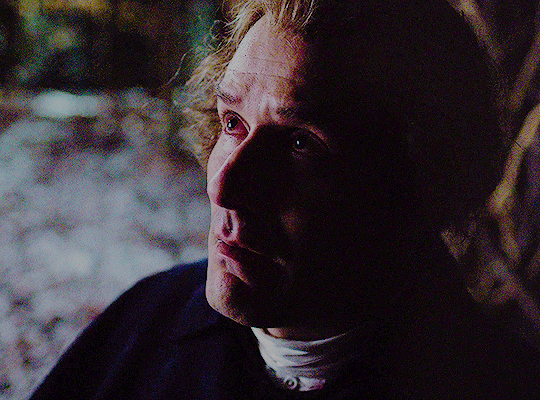
You had to admit that you had missed this side of George. During the war, he was always gone so you rarely saw him but now he was home with you. That was something you were extremely grateful for in that moment. You were sick as a dog. The entirety of the Revolution, you managed to stay well and safe. You'd had nothing more than a mere cold. Now that he was home, your body decided to punish you. Fortunately for you, George was an excellent caregiver.
"Really, George, you don't have to do this," you muttered, but he merely gave you that smile. The one he knew you melted for. The one that also said you weren't getting out of being pampered and taken care of. "I know I don't have to. I want to, my love. You were so strong while I was away and you always take care of me. Now it is my turn to return the favor. Whatever you need."
"What I need is for you to rest, George. And to stop worrying about me." He simply shook his head again and helped you lie down. "I shall return with tea in a short while." You rolled your eyes with a smile as he left the room, muttering about how he'd better get someone else to help or that tea would be ruined. George evidently heard you because he laughed outside the now closed door.
George spent the next three days caring for you. Anything you could even think about wanting or needing, George got it for you. Your only complaint was that you missed being close to him. It was your own doing as you made him sleep elsewhere while you were sick, but you still missed him holding you. And clearly he missed it as well. On the fourth night of your illness, after you had begun drifting off, you felt the bed move.
Your eyes flew open and you gasped until you noticed it was only your husband. "What are you doing?" He shushed you and held you close. "George, you will make yourself ill." He looked at you with a pout. "I have missed my wife. I no longer care if I catch your illness. I've only just got you back and now I've been unable to be close to you again."
His words made you swoon. To the outside world, he was General (now President) Washington. A leader of men and the strategic mind that lead them to victory. But to you, he was simply George. A loving, caring husband who did not always share what he felt, but when he did, it was tender words spoken softly between you. Gentle kisses to your forehead and slight squeezes to your hands. The George the world saw was a hero. The George you saw was so much more.
"Very well, but do not blame me when you feel as lowly as I have." George chuckled at your statement as he helped you settle back down. He climbed in next to you, his arms instantly finding you and pulling you toward him. You let out a little sigh of joy. George pressed another kiss to your forehead as you rested your head on his shoulder and chest. "Rest well, my love," he whispered before blowing out the light. You snuggled closer to him. He would most likely be sick come morning, but neither of you cared. In his arms, you felt safe. You felt warm and cared for you. Being in George's arms was being home.
(a/n: I hope you like it! I chose Washington as I'd already written something similar with Lafayette.)
Forever Tags: @fizzyxcustard @supernatural4life2022
51 notes
·
View notes